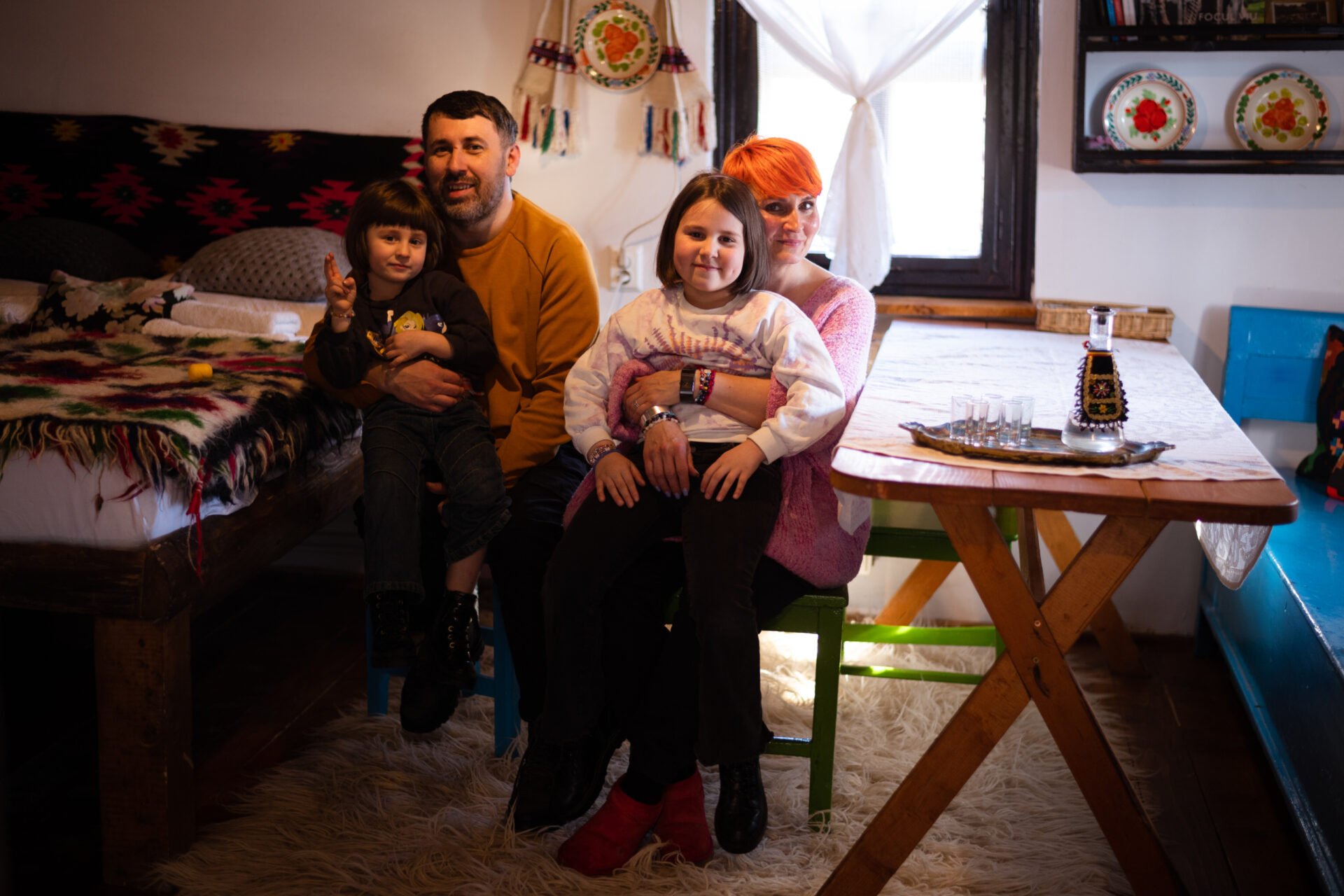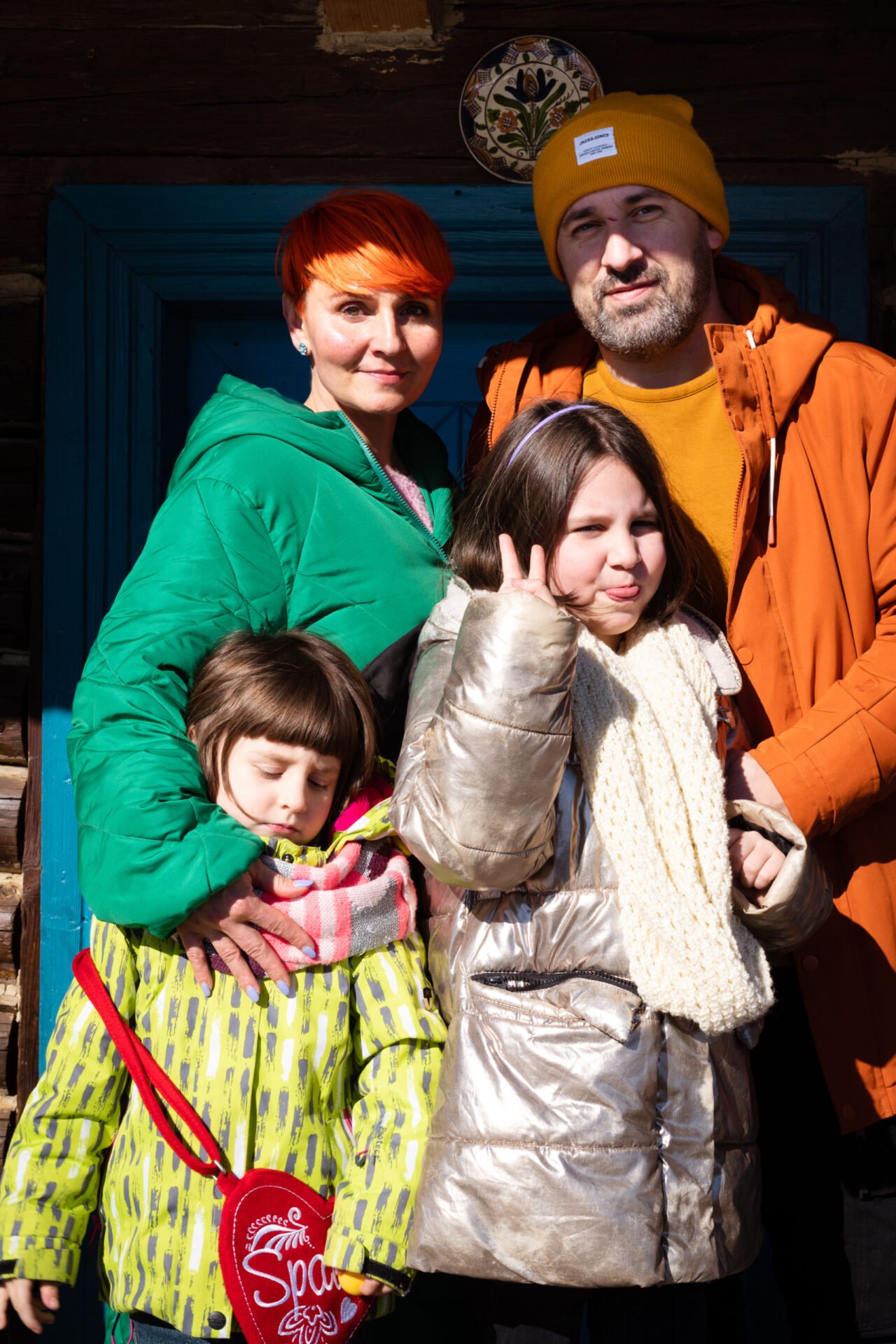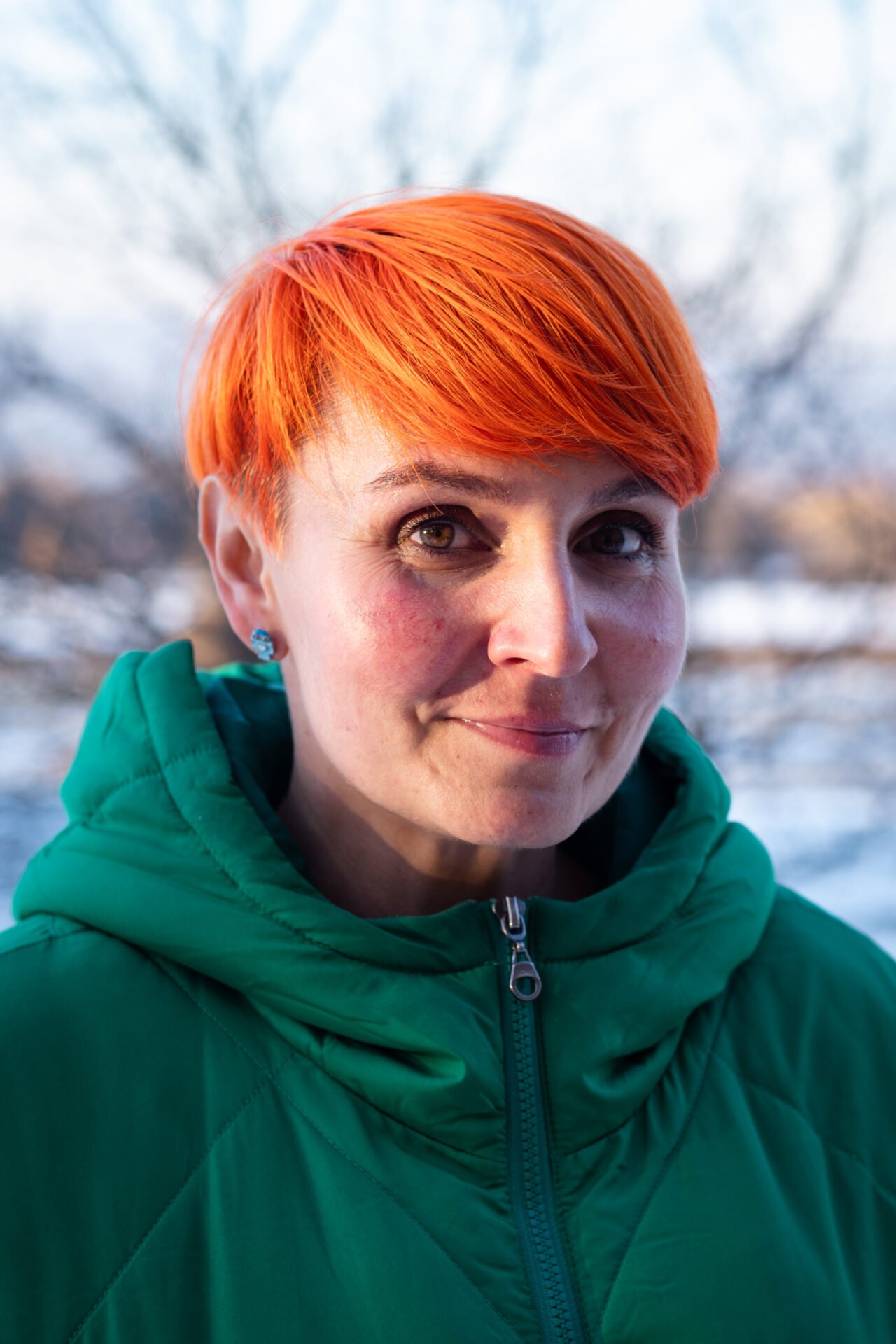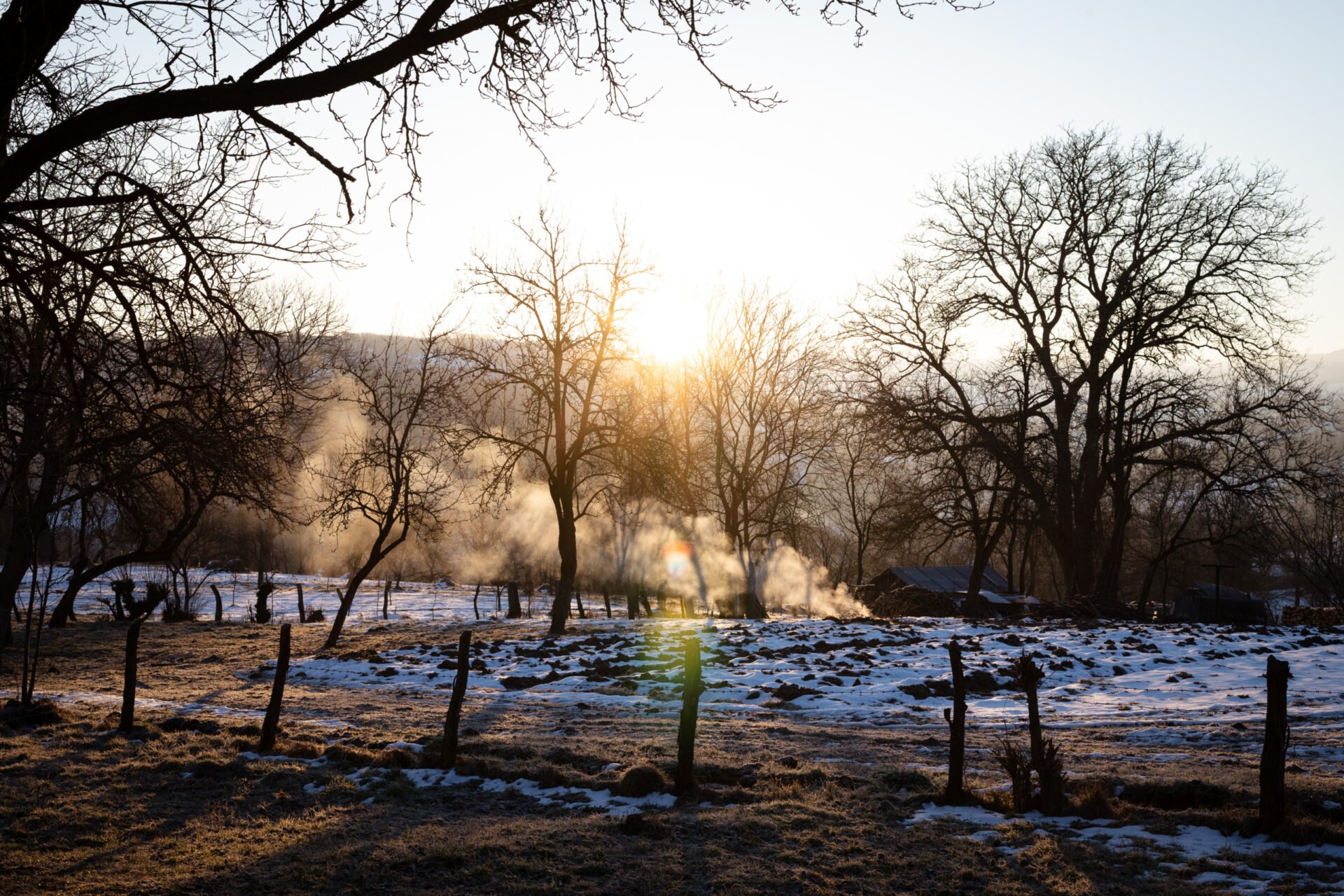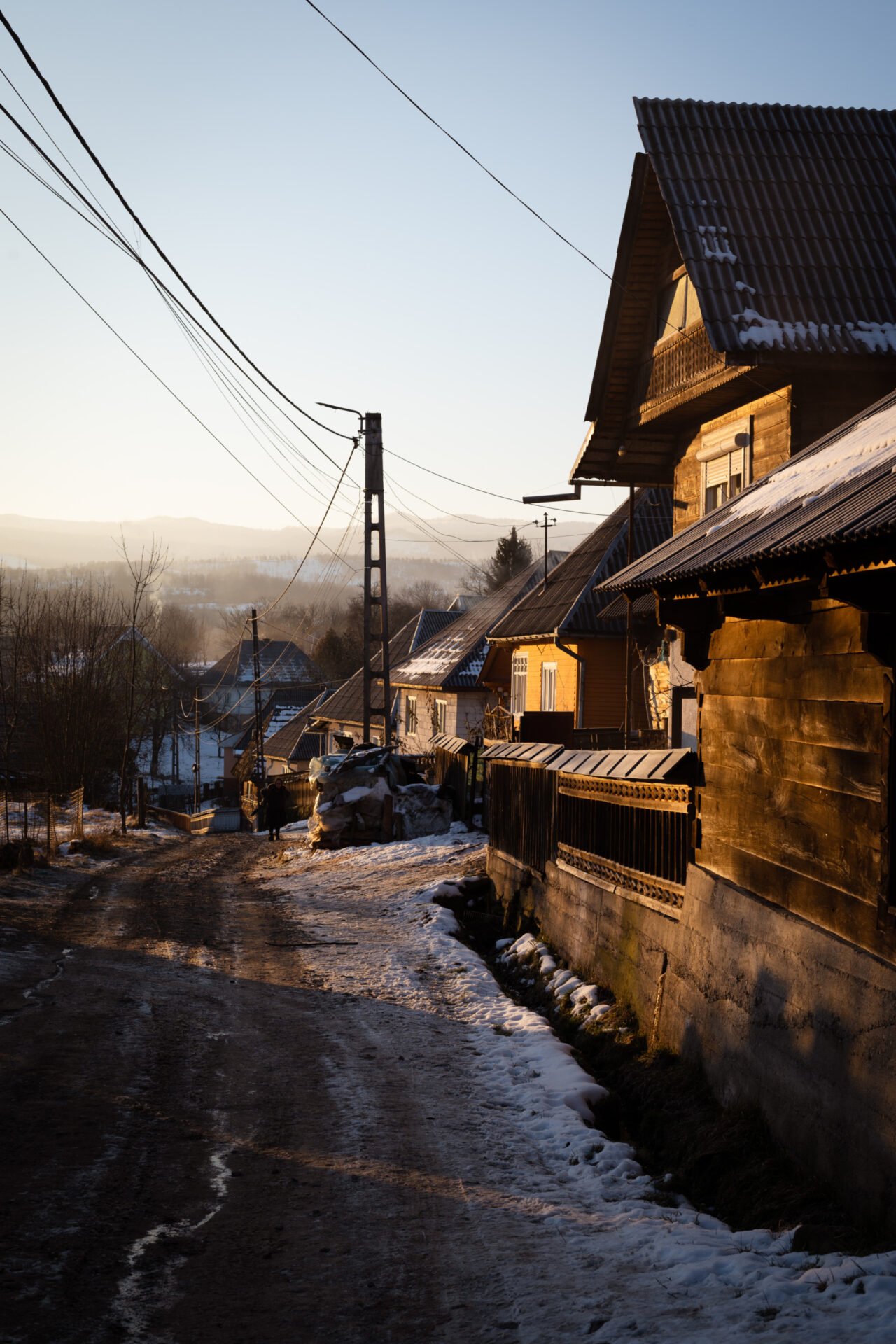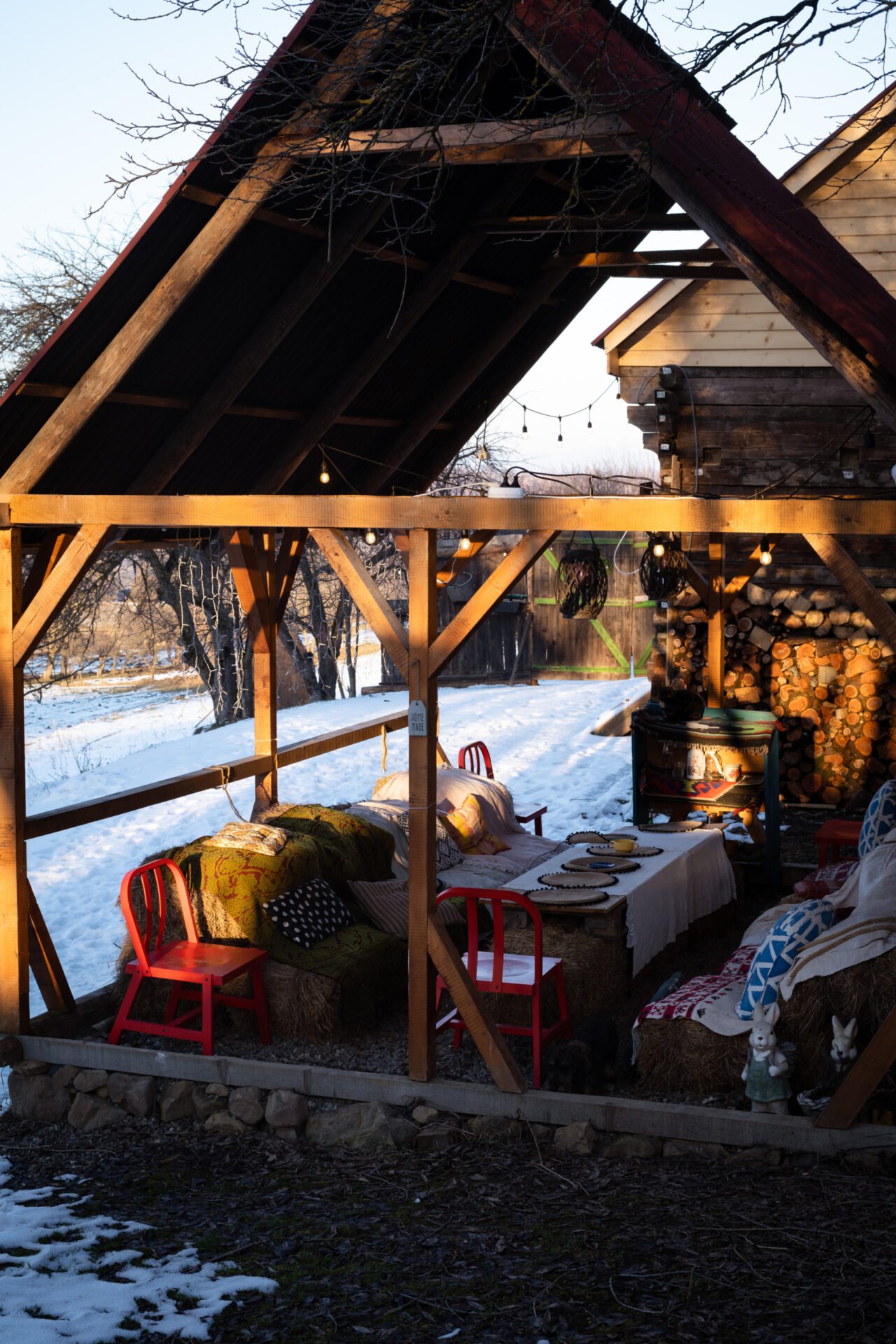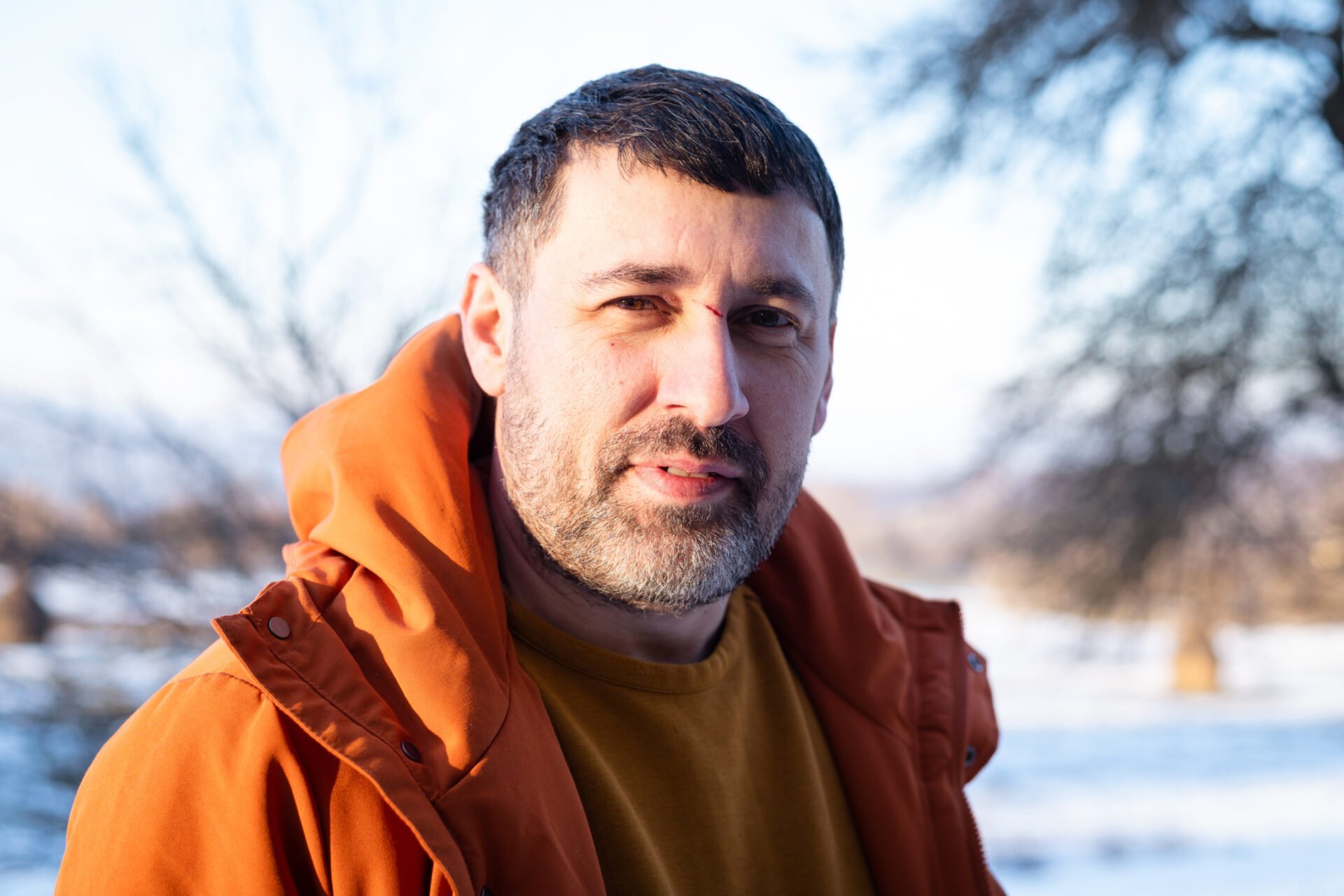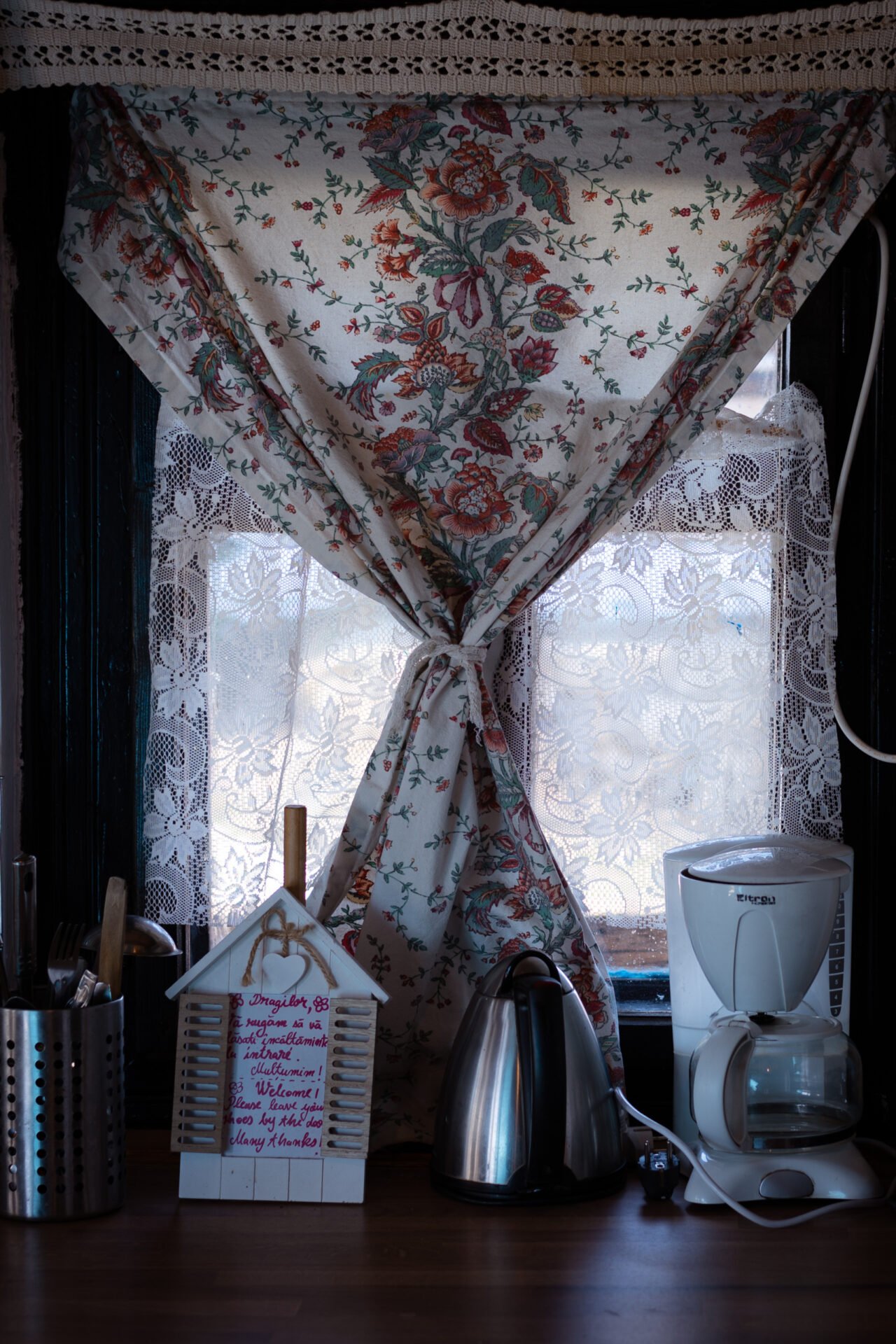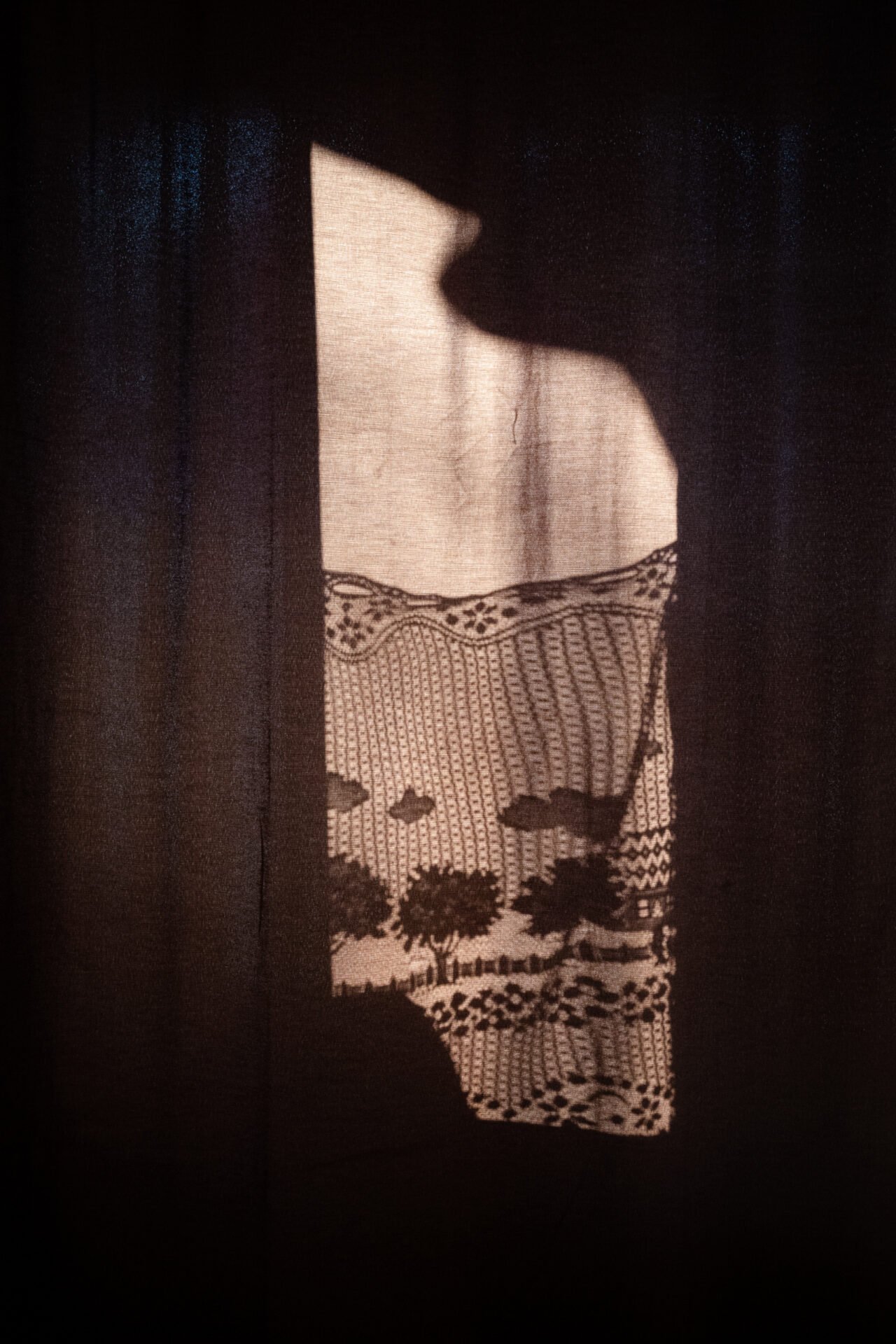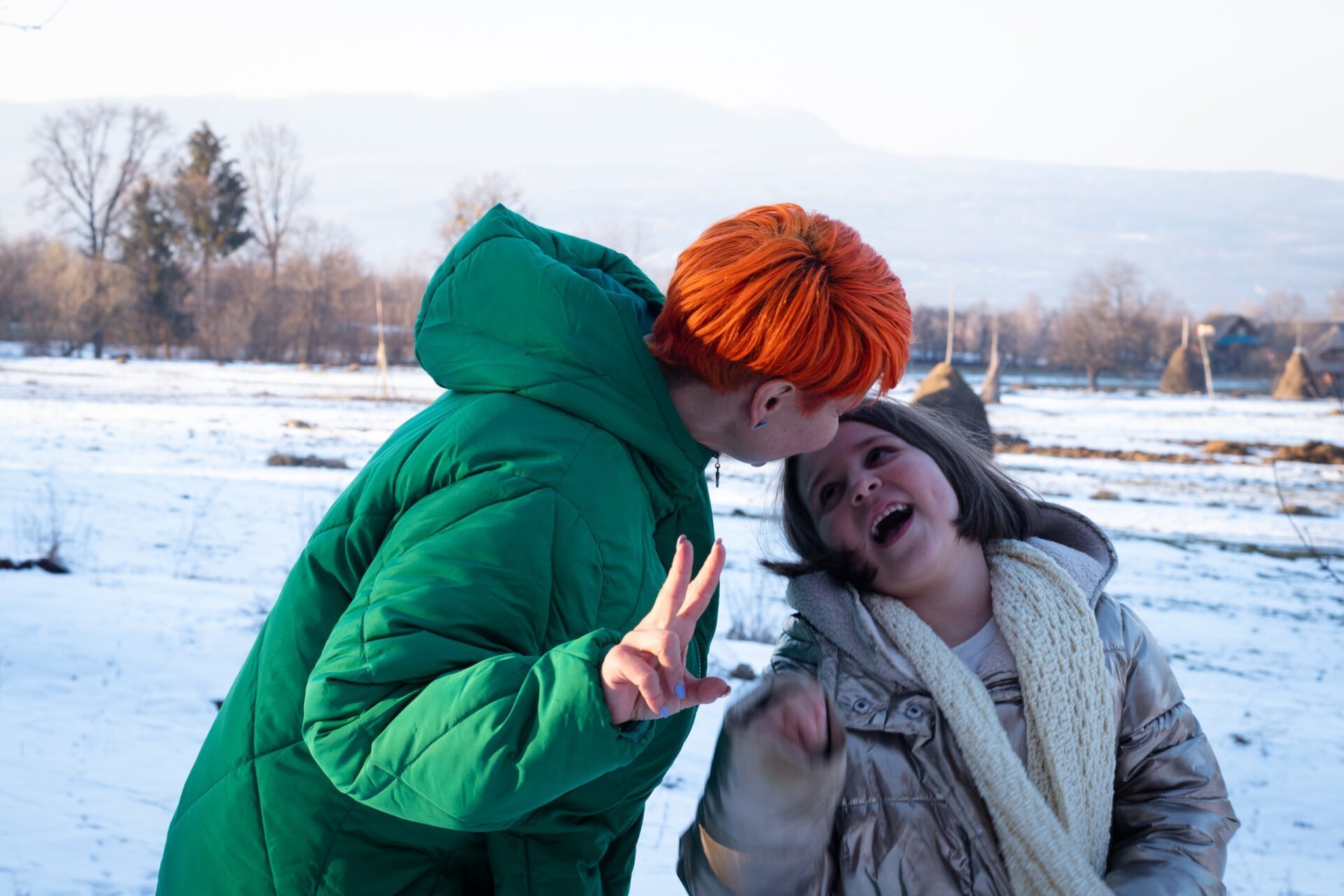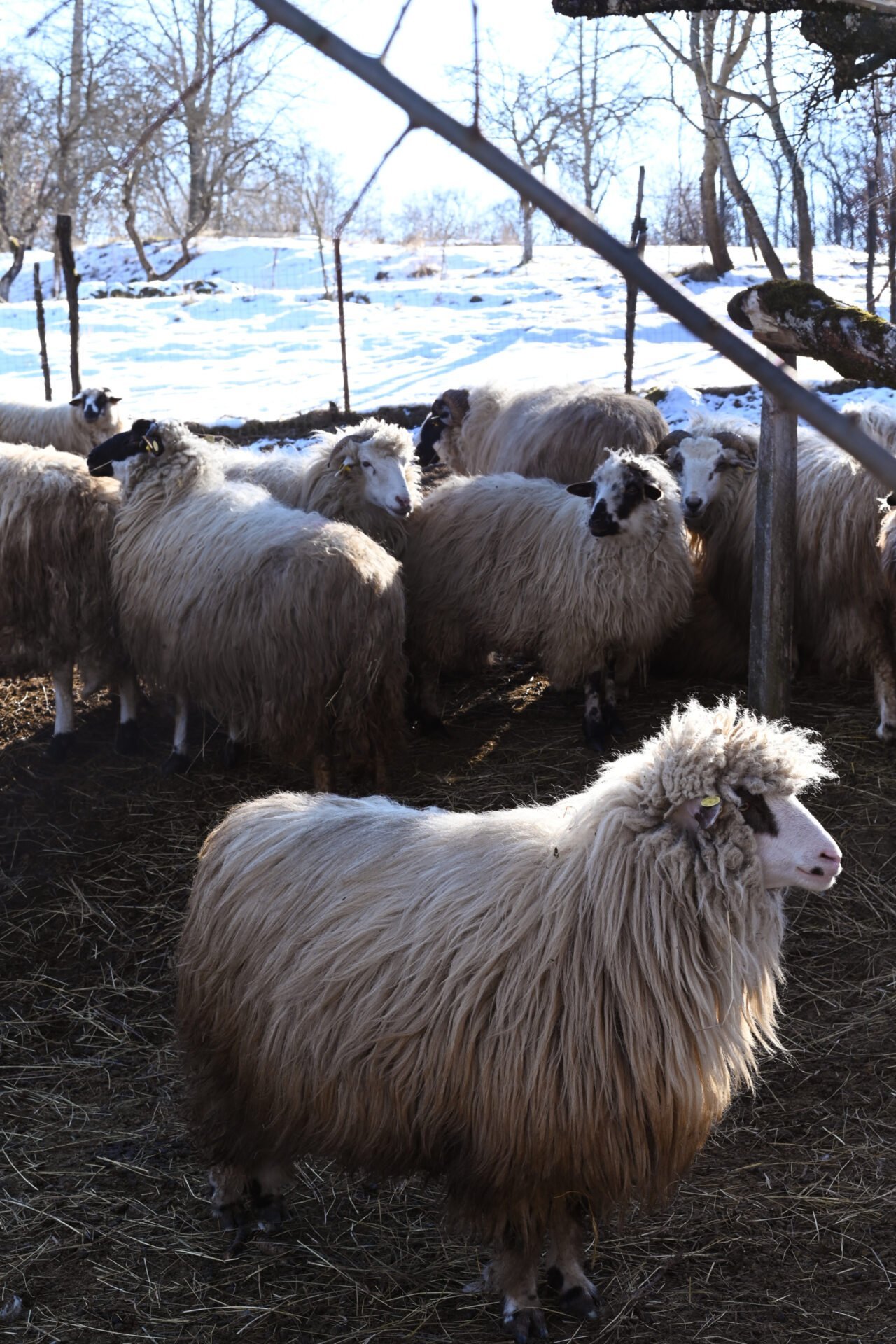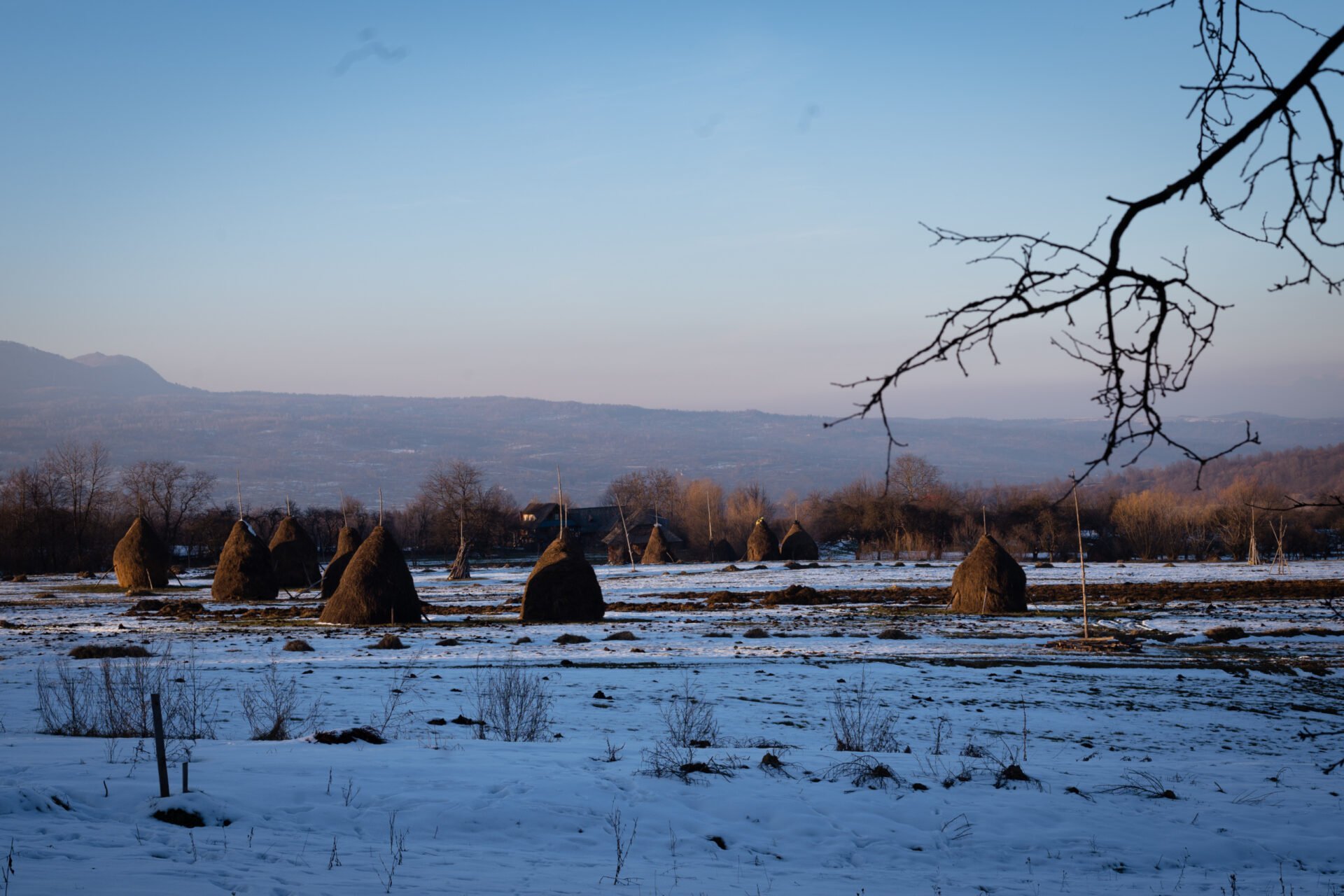Words & Photos: Lucía Blasco
January 2024
It’s a new day in Breb, and Roxana Vale is ready for it. I see her waving from a distance in a glowing-green winter jacket. Her stunning orange hair shines in the white landscape, almost as brightly as her smile, as she watches her dog going in circles around the haystacks. “Benji, come here!” she calls, as the pooch keeps jumping in the snow. She runs after him on the unpaved, icy road. “Let’s go for a walk; I will show you around,” she proposes, full of energy.
Roxana can’t hide her enthusiasm. She loves living in Breb. It’s been six years since she and her husband Florin, both now kicking off the 40s, gave their lives a good shake, leaving the comfort of the city where they met and lived for a while – Cluj-Napoca, Transylvania’s largest city – to start a passion hospitality project in rural Maramureș. Florin had always wanted to take the leap and move to the countryside. He was tired of his job in the city and the constant work trips. Roxana embraced the idea of starting a new chapter in a bucolic environment, and to try out a different lifestyle. In 2015, they decided to buy a piece of land together, and the adventure took off.
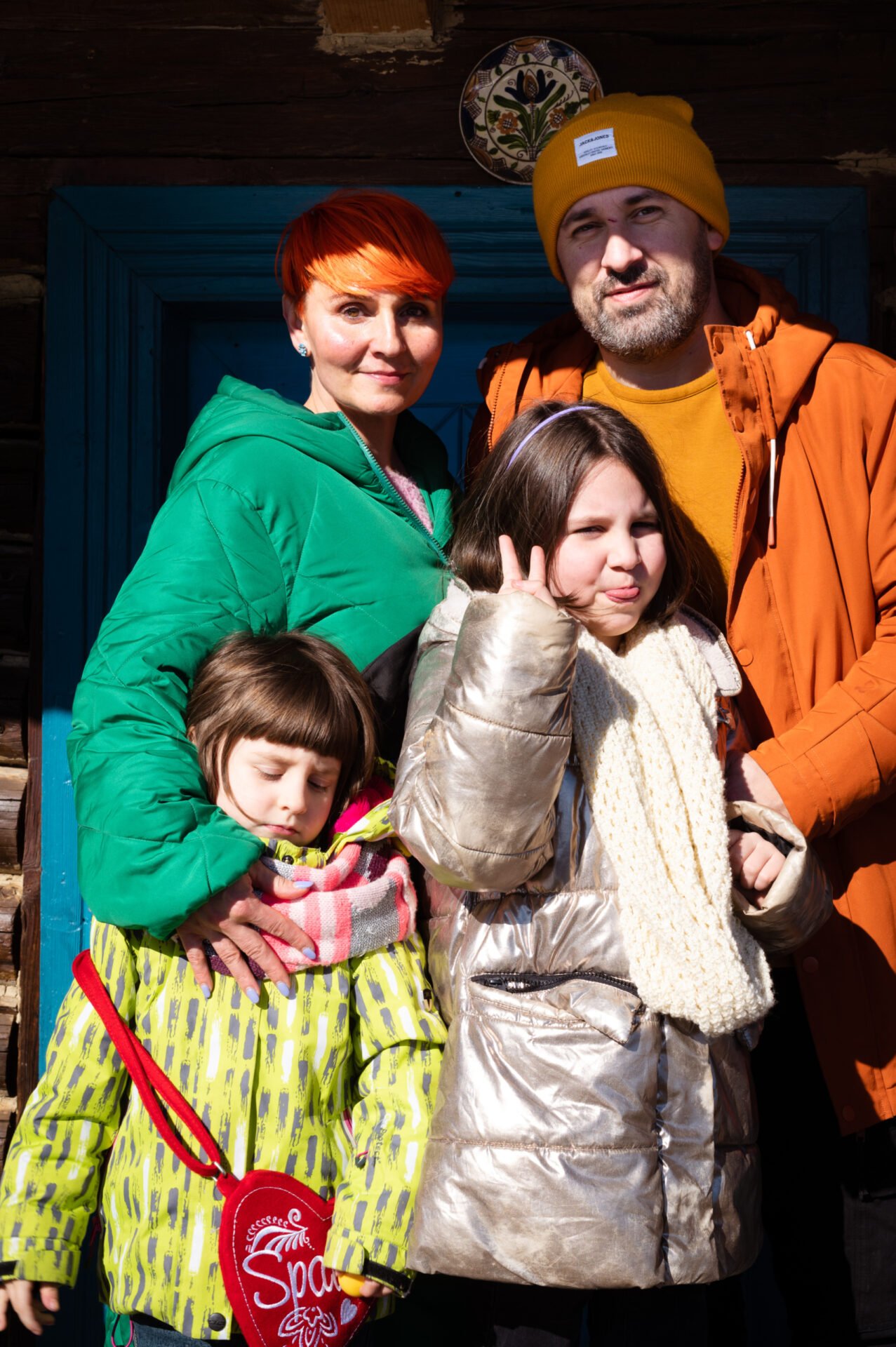
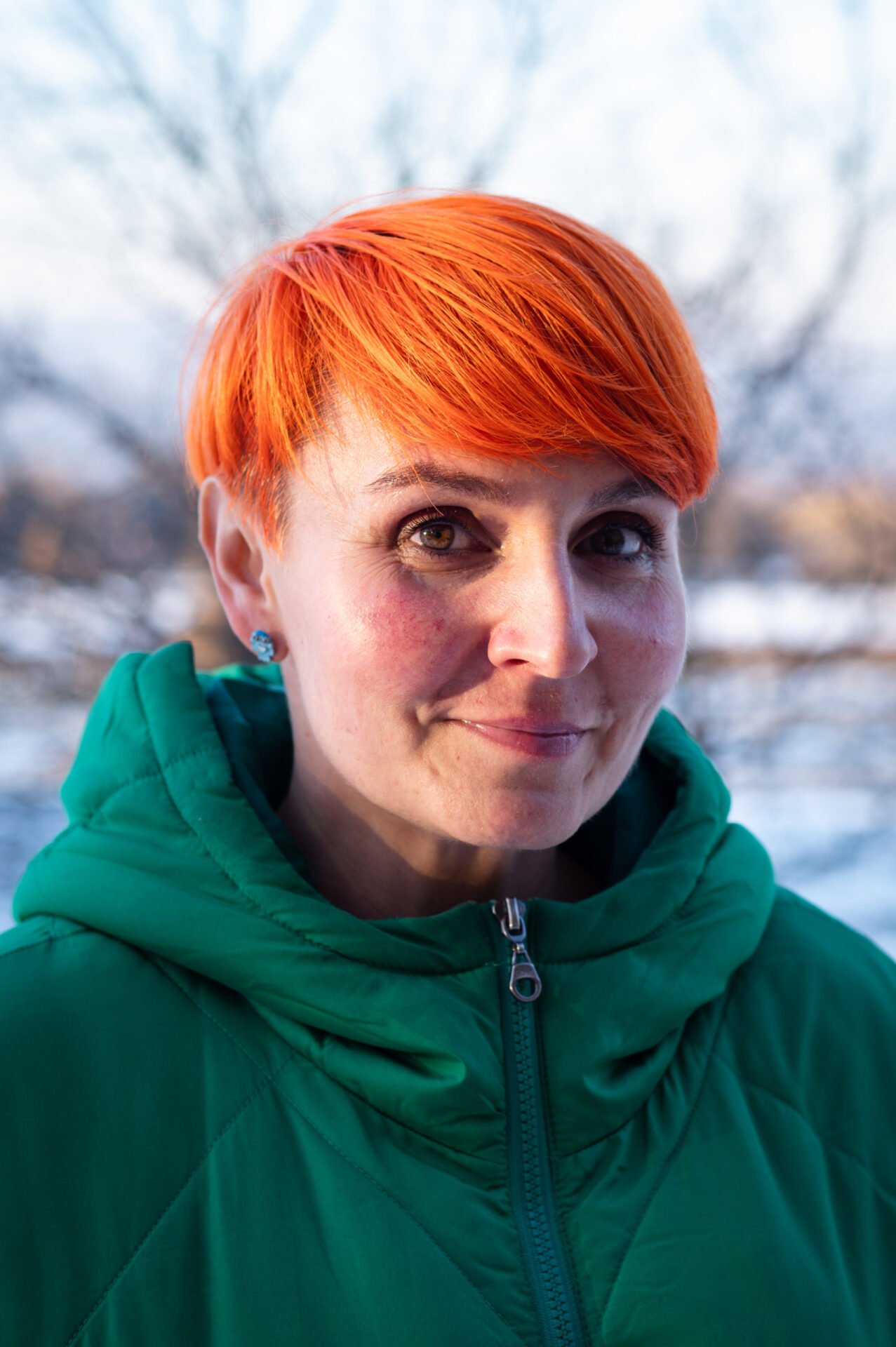
With time and effort, the empty land evolved into a complex of eight beautiful, traditional houses that make part of a sustainable tourism project. The concept behind the rural hotel is to bring houses in ruins back to life. The couple restores old traditional houses they find and bring from different parts of the region to rebuild, keeping the typical wooden architecture alive. In the beginning, Florin was coming to the village just on the weekends, dedicating all his spare time to supervising the reconstruction of the first house. “Being part of the building process was really important to me,” he says. Eventually, they made the move, and settled down in Breb, where they now live with their two daughters, Nina and Iza, who attend the local school. Judging by the expressive laughs of the girls, they seem to be enjoying this slow-paced way of living as much as their parents. The couple named their hotel Casa din Vale after their family name, Vale, which also means “valley” and translates as “the house in the valley.”
But Breb is not the most comfortable place to live in, admits Roxana. “At first, I had to get used to the silence and darkness at night. As you can see, it is now muddy outside and cold inside. The wooden floors creak. But you have to embrace the imperfections; that’s why you come here: to taste the authentic life.”
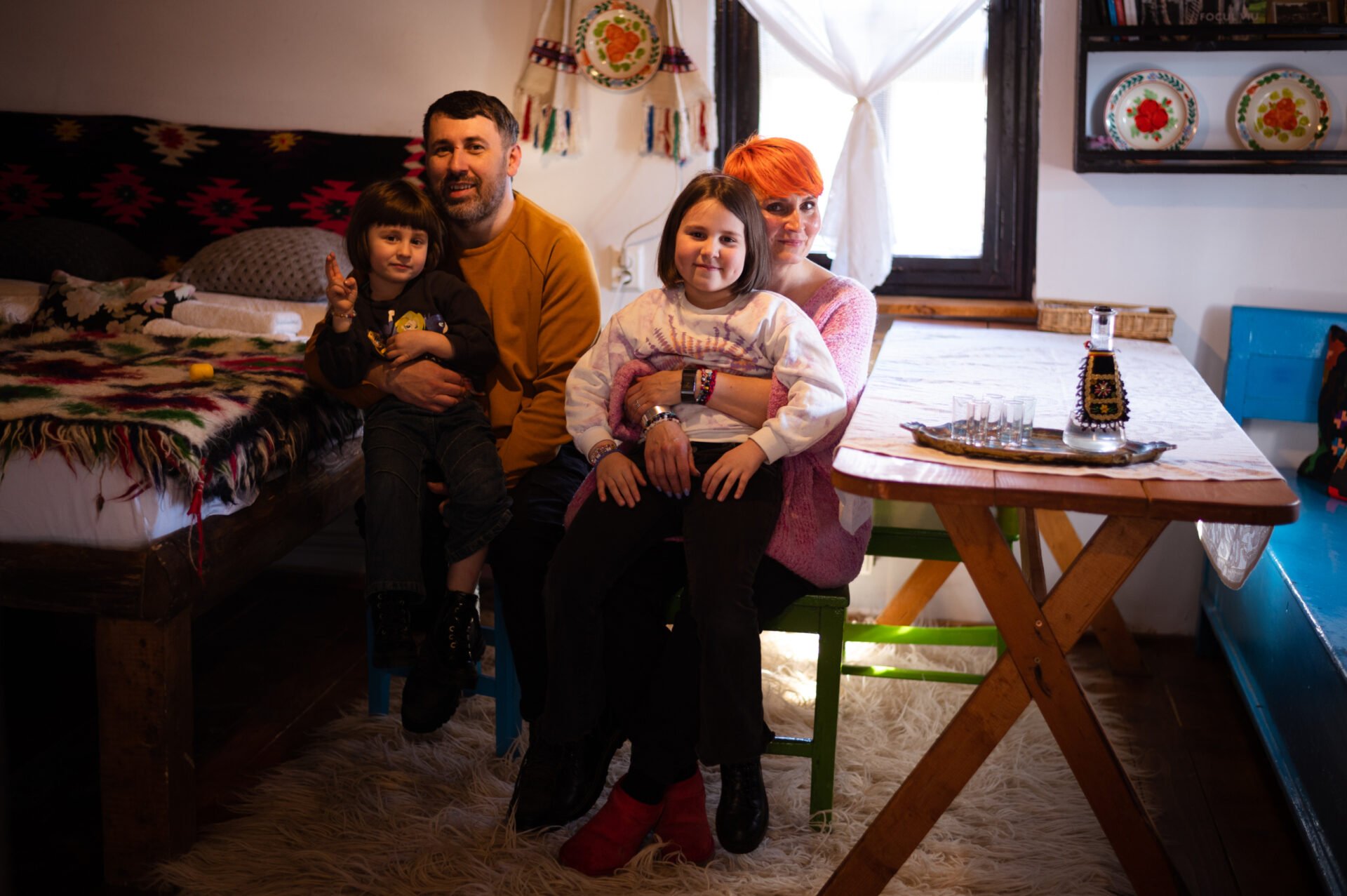
The House in The Valley
Located in Maramureș County, a region in the north of Transylvania, Breb is a village surrounded by the northern Carpathian mountain range. Traveling to this area has often been described as a step back in time, partly because of the century-old Romanian traditions that still make part of the villager’s daily life, but also because of its agrarian landscapes, its history too often forgotten – less industrialized than the rest of the country – and its traditional wooden architecture.
This architectural aspect was a crucial part of Florin and Roxana’s project: “We had the desire to save part of the ancient architecture of Maramureș. To get closer to the traditions, the simple and calm life of the village. To make sustainable and innovative tourism through accommodation in old rebuilt houses.”
With their savings, they bought a house in Breb in 2015, the same year they had purchased the land. The restoration was hard work: the house was dismantled, and the walls, which were over a century old, were rebuilt piece by piece, exclusively with local materials. They numbered all the wooden pieces to know where each would go once rebuilt. The roof alone was made out of 15,000 shingles. It was a complex process. They managed to achieve it with the help of a local craftsman, Vasile Pop, who was in charge of the construction works and with whom they have collaborated from the beginning until now.
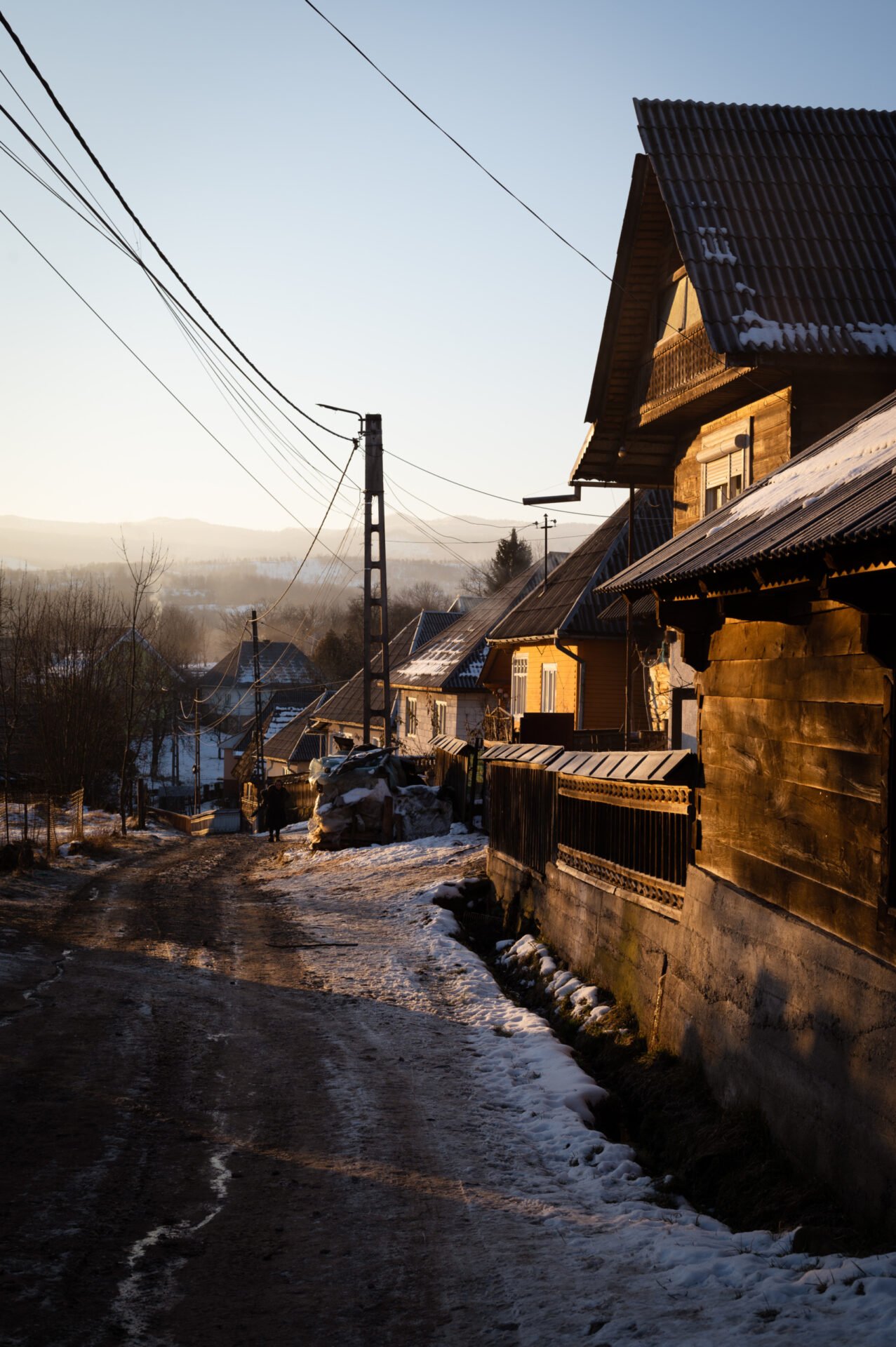
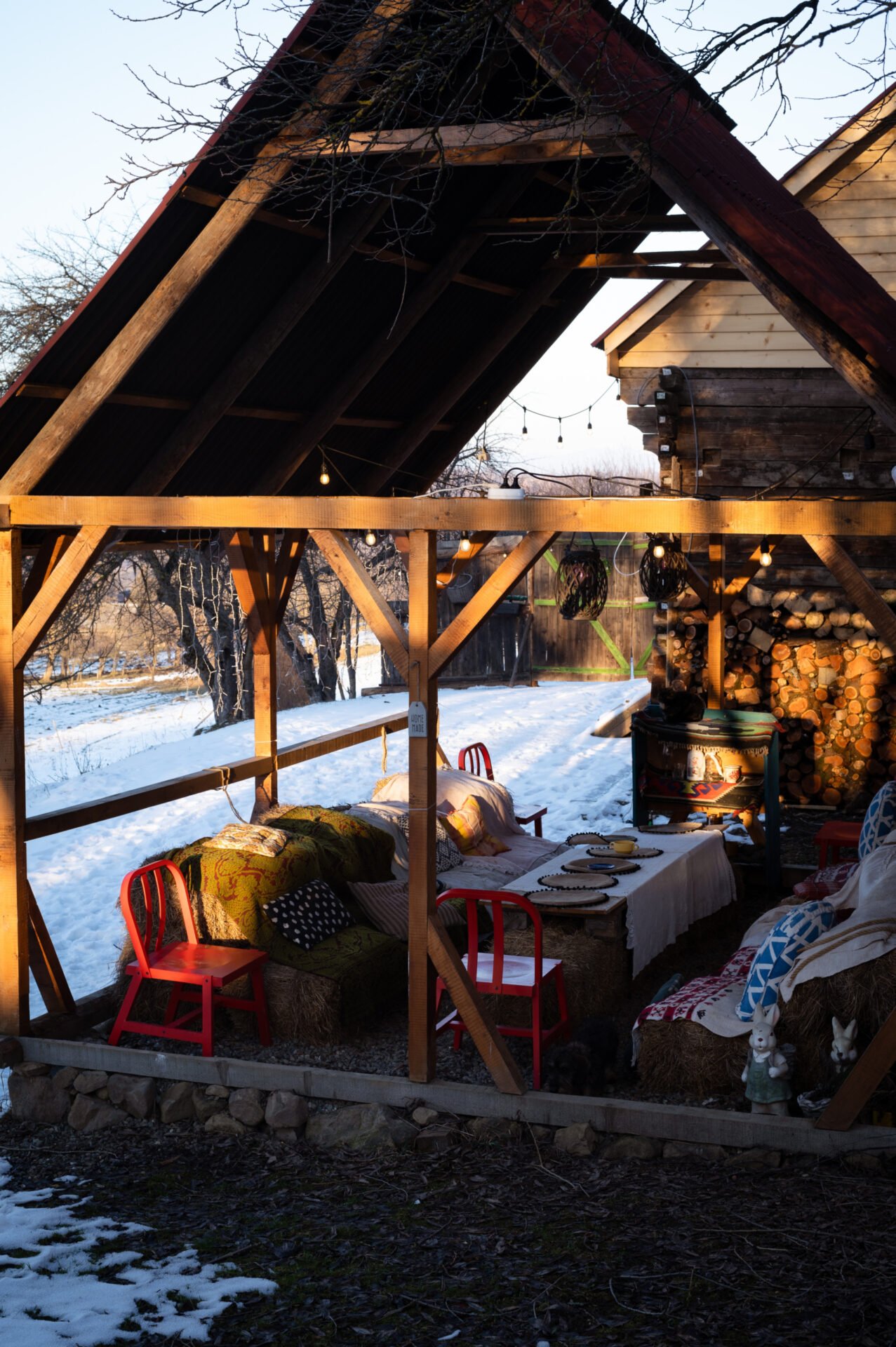
The emotions when the first renovation was done eight years ago still move them today. “It was amazing,” says Florin, showing with pride some pictures of the process. He helped physically in the restoration and “learned a lot from the workers along the way.” The outcome was so positive that they bought a second house that same year. And the project kept evolving. In 2017, they managed to finish a third house. It was also a life-changing moment, as they decided to leave their jobs in the hustle and bustle of the city, and move to the village for good. Once there, they built five more houses over the next few years. There are eight houses in total now, seven “awaiting for guests to discover their charm and stories,” while the eighth one (Casa Iza, named after their younger daughter, born the same year they finished its restoration), is where the family lives.
“We are happy to keep these architectural treasures alive, even though we have provided elements to adapt them to current times,” they say about their project. We have “remade and rethought everything on the inside,” with the aim to “create a new space, mixing authentic accents with a cottage/bohemian twist.” For instance, they adapted the rooms to include double beds and bathrooms, which didn’t exist in the old times. The idea, Roxana says, was to create a simple yet cozy space, to recreate in the Romanian countryside some sort of wabi-sabi feeling – a Japanese philosophy that embraces natural elements and the beauty of imperfection. She also describes it as “fusion cuisine;” it combines modern and traditional elements for a holistic travel experience, embedded in a trip back in time. There is undoubtedly a fairytale element in Breb, and Casa din Vale – with its homely, inviting and sustainable soul – found a great way to embrace it.
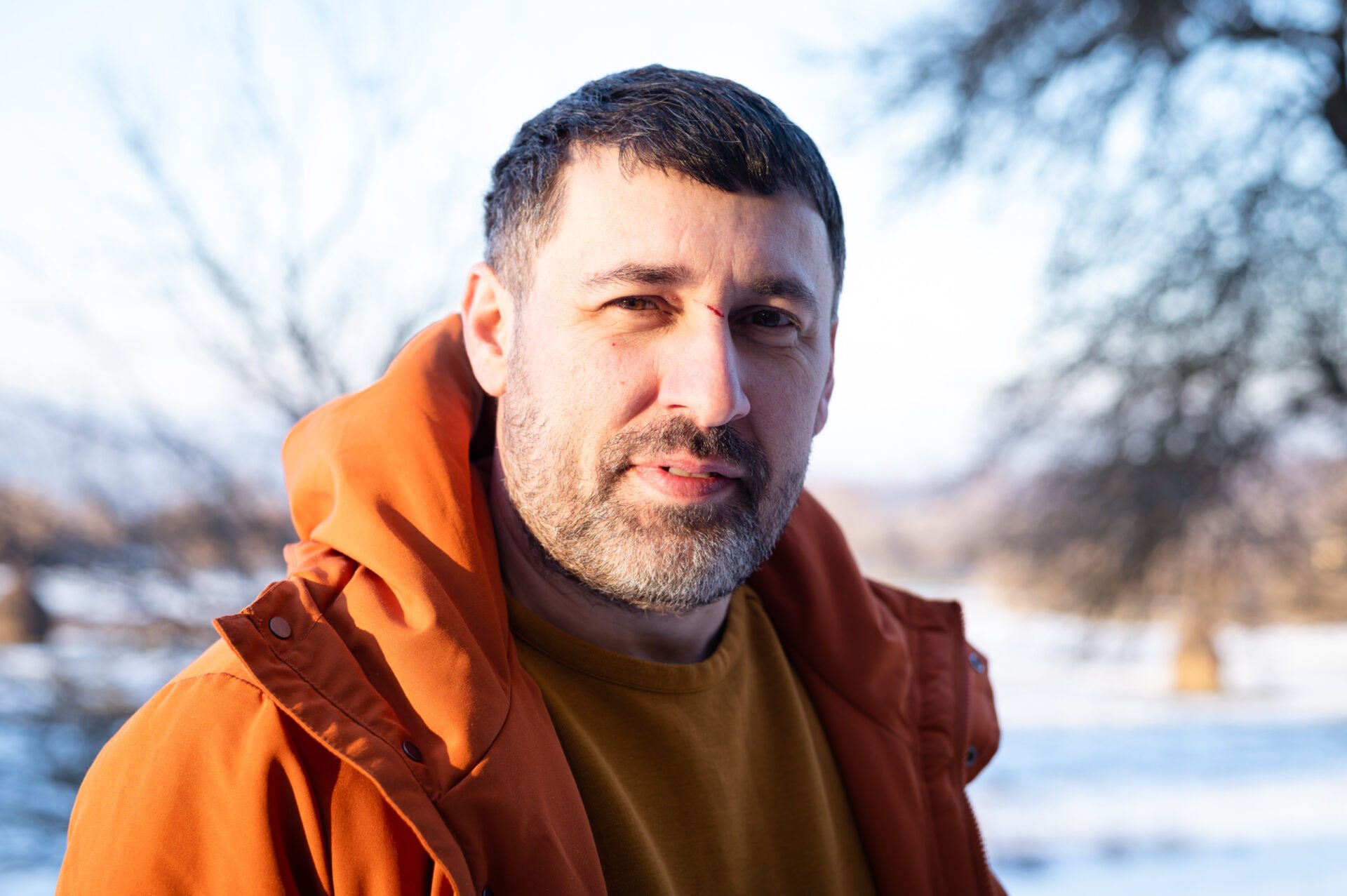
Old Times, New Experiences
Visiting Breb makes for a truly rural experience and a journey back through time. Most of Breb’s villagers (around 1,000 people) grow their own vegetables and have farm animals – chickens, sheep, goats and pigs – in their backyards. Horse and mule carts are common means of transportation, and it’s easy to see women spinning wool in the old manners at their house porches, local craft artists working the wood, and shepherds with their flocks.
But the village has been slowly growing as a rural vacation spot. Many people in Romania regard it as a tourist destination. However, it is still underdeveloped in many ways – especially in the eyes of the foreign traveler – although there have been international visitors, including British monarch King Charles III, who bought two houses in the village and has been a frequent visitor.
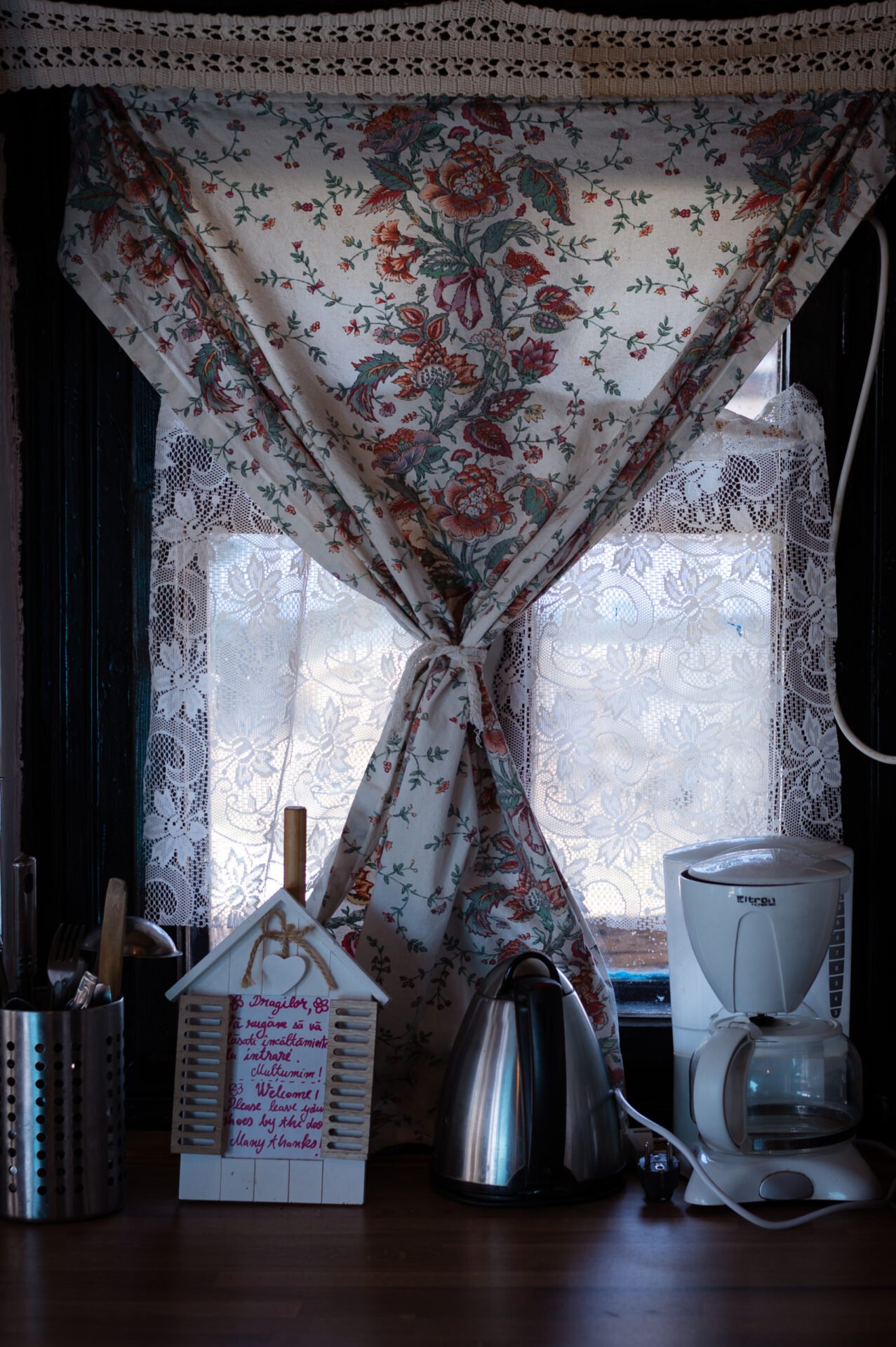
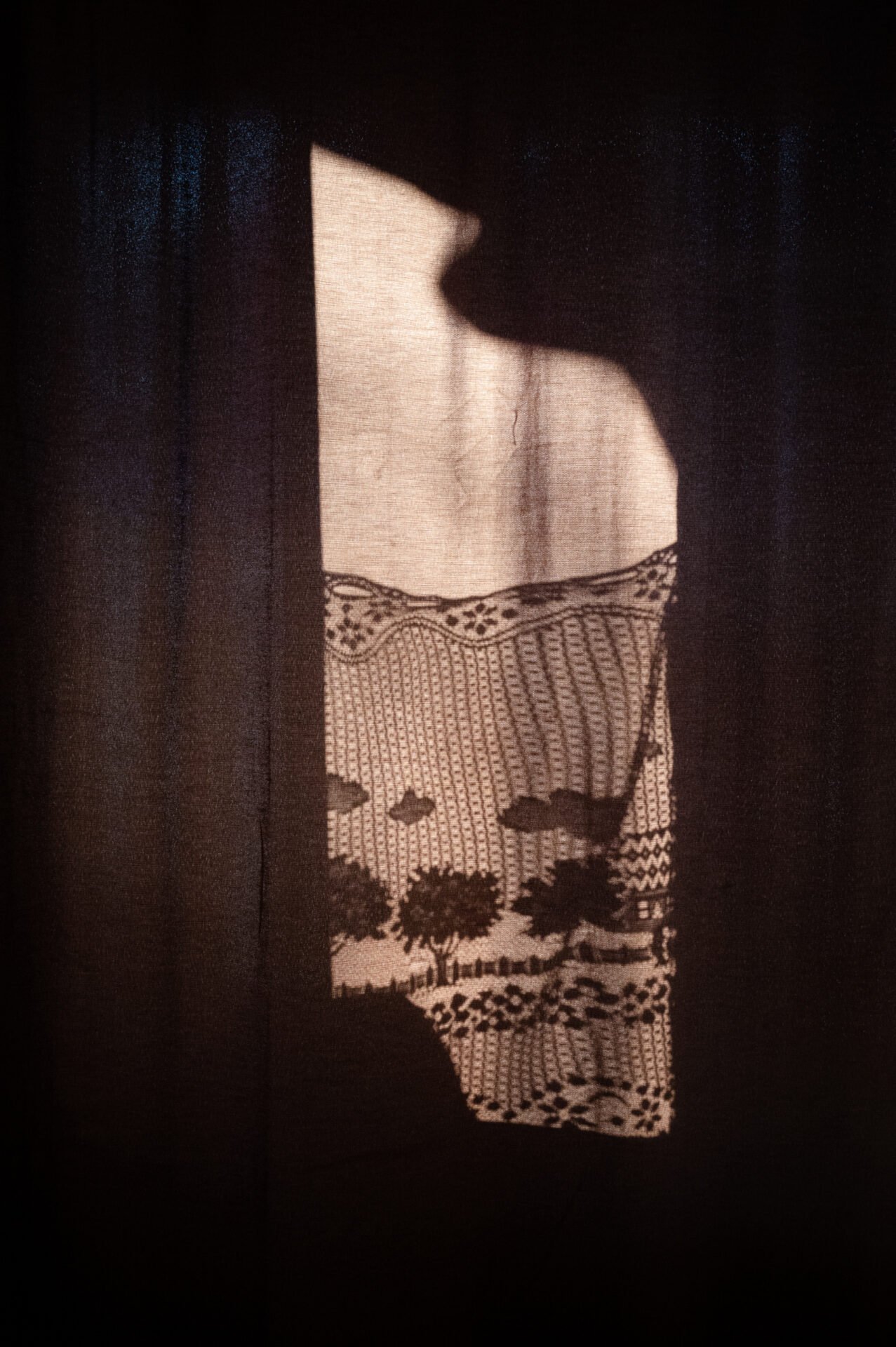
In fact, Roxana and Florin highlight the international profile of their visitors: “Our first guest, in 2016, was an American poet who was living in Bucharest at the time, Tara Skurtu. We had 95% foreigners that year, mostly from the UK, Germany, France and Italy.” Then Romanians started to come: “In 2019, national customers made up about 30-40% of our client base. But in 2020, with the start of the pandemic, only Romanians came.” Sadly, something shifted. The couple noticed that the Romanian tourist profile began to change among some Breb visitors. Local people from the village started to convert their houses into guest houses as well, but its low quality reflected onto the vacationist profile, attracting a different kind of local tourist; the one who plays loud music outside and is not interested in discovering the region. “But good quality tourism is still coming, people who want to understand the local culture, relax and embrace nature. We are happy that we keep maintaining that tourist profile.”
To Florin and Roxana, the old customs of Breb’s inhabitants only make it a more interesting place to visit; that’s why having the right guests is important for them. In their own words: “We started our project to preserve old traditions, to keep them alive, and to help develop a further sense of community.” Breb, just like many other villages throughout Romania, suffers from an exodus of people.
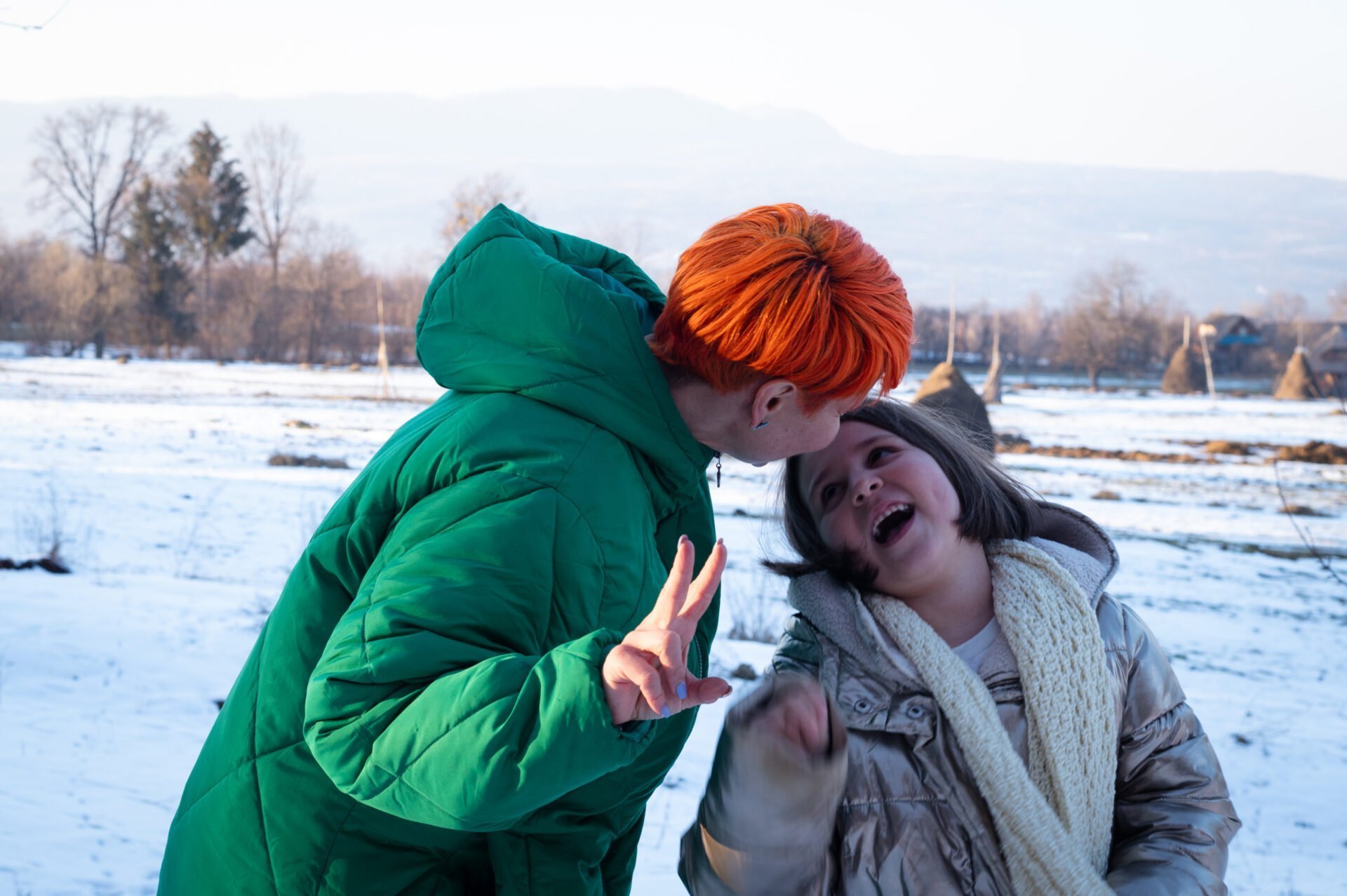
To contribute to the community, they began hosting cultural events – from evenings with local singers to traditional cooking classes or sculpture workshop visits – open to anyone curious enough to discover more about this part of the world and its people. In 2019, they started organizing a yearly festival (Fest and Vale), local fairs, as well as summer events, including open-air theater for kids and outdoor film screenings. For instance, they hosted one of Transilvania International Film Festival’s (TIFF) “Caravan Screening,” amongst other movie events, some in collaboration with the environmental NGO World Wide Fund for Nature (WWF) Romania. They also work with an entity that organizes three-day marketing camps at their location, attended by professionals mainly from Cluj and other cities such as Timișoara.
As of 2022, they began hosting jazz nights and talks, such as with Teofil Ivanciuc – a travel expert from the region, and with William Blaker – a British writer, who gave insights about his personal experience in Breb. These types of events give Casa din Vale a fresh twist within a rural, traditional context.
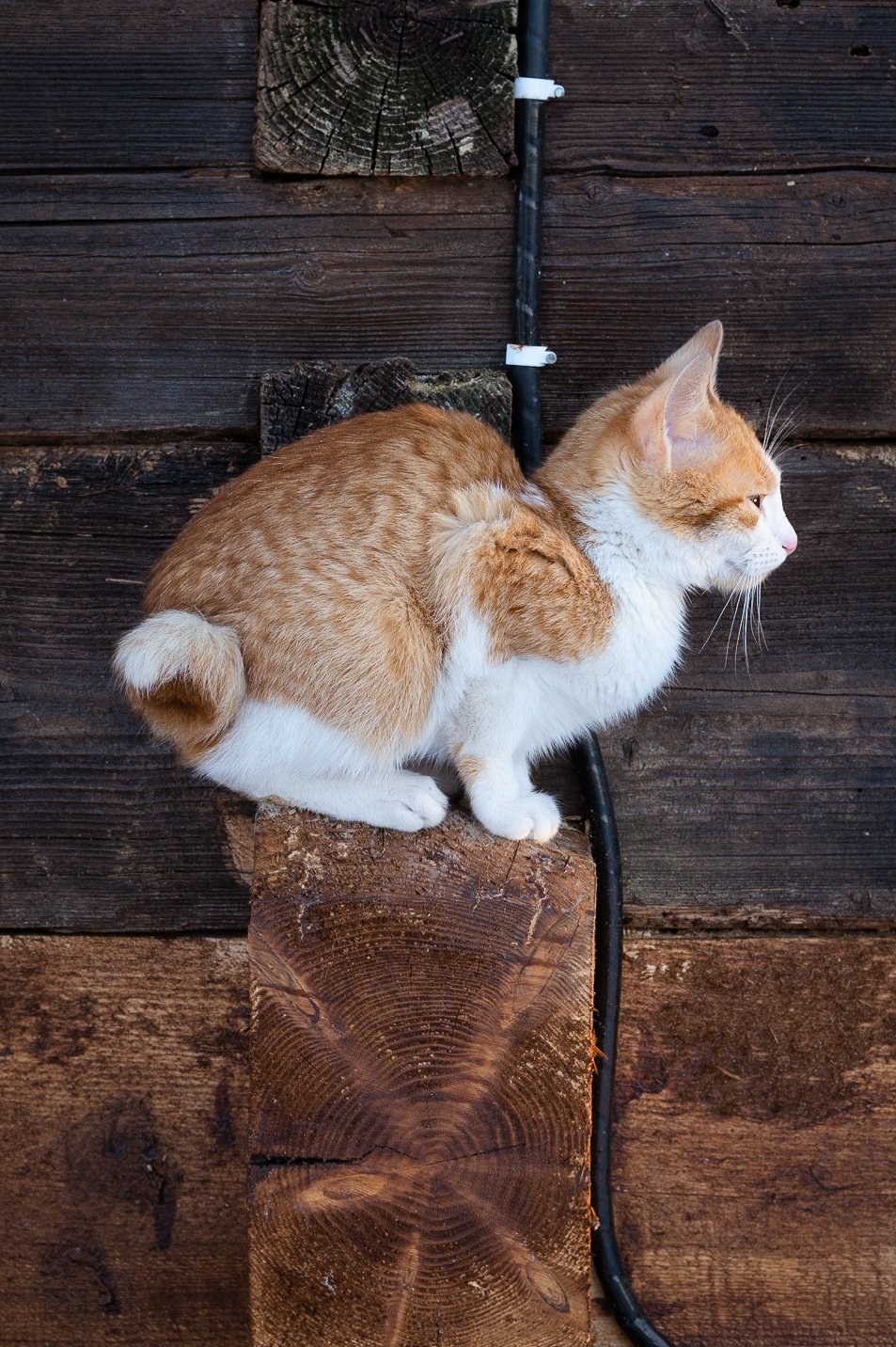
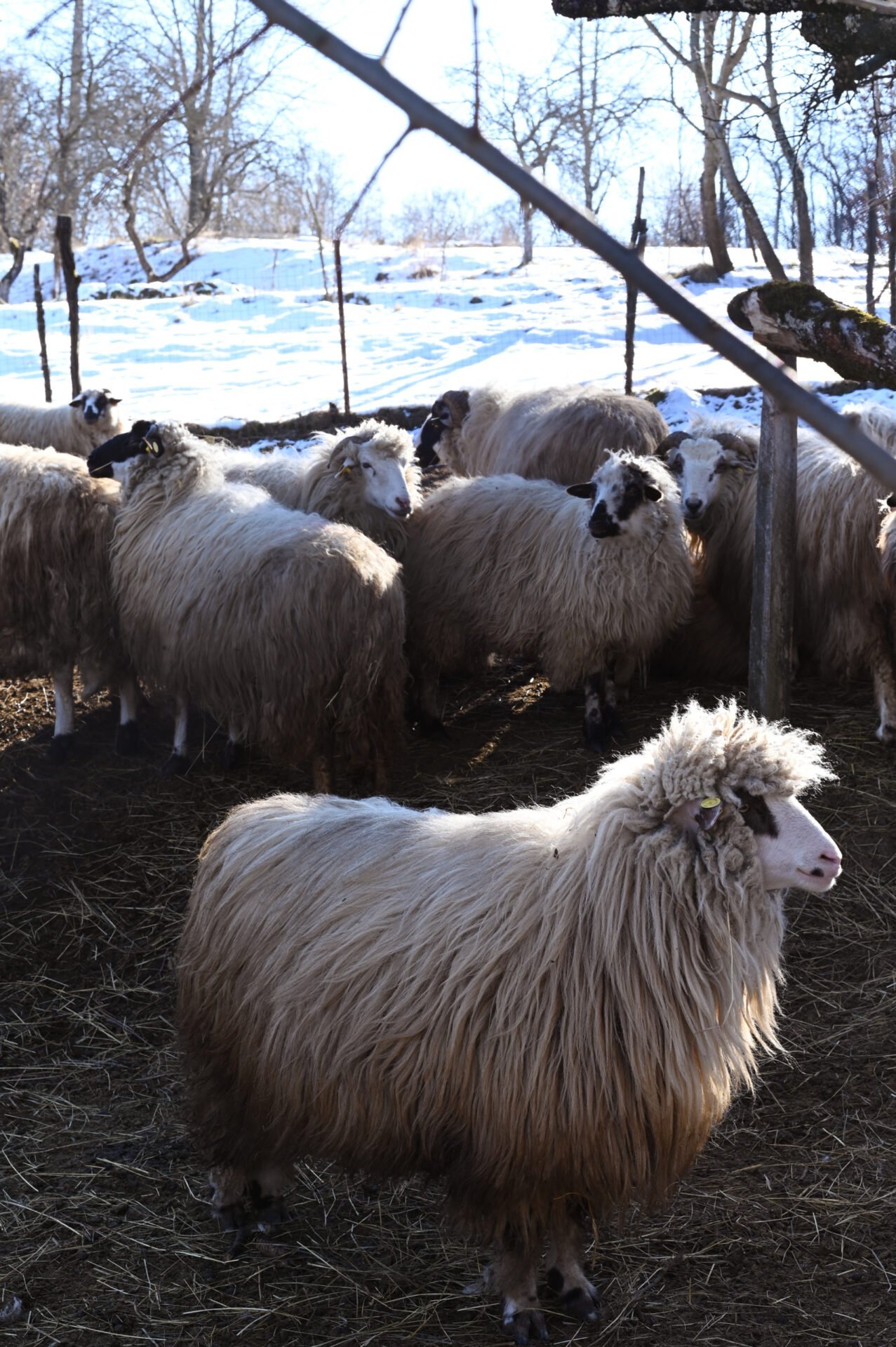
Newcomers
When asked about the locals’ reaction to this modern spin, Roxana proudly describes it as “a win-win situation that goes beyond tourists coming here to spend money.” She says they ensure that everything, from the food, to construction materials and musicians they collaborate with, are all local so that the community grows organically too.
Considering the Vale family’s past city life – contrasting their neighbors traditional way of living – it’s inevitable not to wonder about the degree of culture shock. “Our life is much slower here, but we are still modern consumers” Roxana says. Breb’s inhabitants have primarily lived in the village for generations, many with a farmer’s lifestyle. How were Roxana and Florin, these “modern strangers,” welcomed?
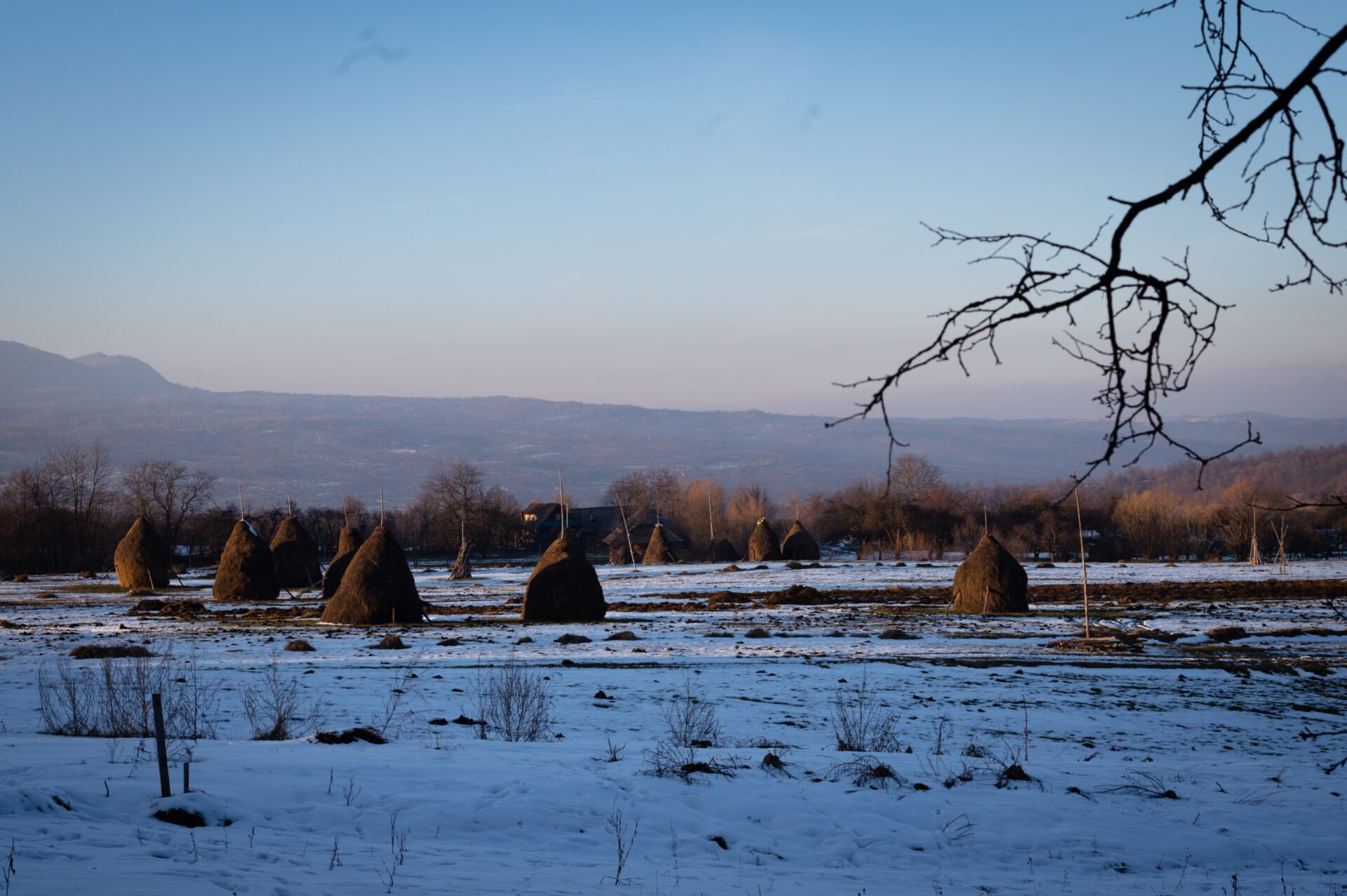
“People were curious and friendly, but also a bit skeptical. You can imagine how the old ladies looked at my blue hair – it was blue when we moved here; I have changed my hair color three or four times since then. There were some reactions. I also have tattoos, which in the summer attract attention,” Roxana says. “I could sometimes feel them making funny comments behind my back. But they were all very welcoming, maybe sometimes even too much, to the point it became like a competition between them to be our friends. But we kept a diplomatic distance to avoid getting into their dramas and squabbles.” Part of the differences also lies in their degree of religious practices. For example, the locals attend church every Sunday, while Roxana and Florin do not. “There are differences between us, though, of course, we respect everything they do here,” adds Florin.
In the meantime, the couple’s next focus is to expand their cultural gatherings and events to keep sharing with the community, and help more people discover this charming and unique part of Romania that changed their lives forever. They look to the future through positive eyes: “Let’s all be healthy, more optimistic, more empathetic and serene, like a summer day in Magic Land Breb!”
